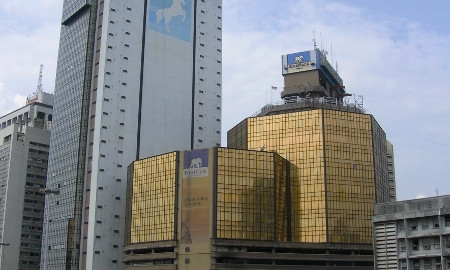Ever since
First Bank’s inception in 1894 – when it first served the essential role of introducing modern banking into Nigeria under the original guise of Bank of British West Africa – the company has been a constant leader of the former British colony’s financial sector.
For many decades the bank was in fact the only one operating in Nigeria, and for a period following the industry’s boom in the 1930s, it came under the control of the Nigerian government before subsequently being acquired by the UK-based Standard Bank.
Indeed, while the country’s banking sector has developed, it is true to say that the First Bank of Nigeria (as it was re-named in 1979 after Standard sold their shares to domestic investors) has positively evolved with it.
From the continued growth of competition to the various shake-ups the industry has suffered in more recent times – including when many of Nigeria’s biggest lenders faced bankruptcy during the 2009 financial crisis – First Bank has not only survived but remained at the forefront, becoming known for its remarkable dynamism, and as a symbol of great strength and fortitude.
Post crisis, it is now with the country’s fast growing economy and revitalised banking sector (a recent IMF report described its major banks as “well capitalised, liquid and profitable”) that healthy rivalry is thriving once more. And as a result, First Bank has yet again needed to innovate and inspire to retain its position at the top.
“As the banking crisis in Nigeria is being resolved, competition becomes tougher. So we believe that the only way we can continue to maintain a strong hold on our traditional segment of the market is to make sure that we put everything into that segment to drive national innovation and expand our market share,” says Managing Director and CEO Stephen Onasanya.
The presence of increased competition in the mass market, as Mr Onasanya explains, is the factor that fuels First Bank’s drive for “national innovation” and its strategy of financial inclusion – the delivery of affordable financial services to sections of the disadvantaged and low income segment of society.
“The difference between First Bank and most other banks – and a major factor behind our success – is the fact that we are able to bank the masses and offer them banking services when other banks do not want them.
“We are a brand that is well loved and we believe we need to give back to society part of what we have gained from it. Do not forget that First Bank was at some point fulfilling the role of the Central Bank, not just for Nigeria, but for the whole of colonial West Africa. So on that side we see it as a social responsibility to drive financial inclusion.”
According to the World Bank, only 24 per cent of the adult population of sub-Saharan countries had a bank account in 2011, while there were, on average, 2.7 bank branches per 100,000 adults. However, new innovations in information and communication technology have transformed the sector in Africa recently, with access to financial services becoming more widely available, largely through the vitally important development of mobile telephone banking.
This more convenient way of banking – for both customer and provider – has taken the market by storm, again helping to increase competition for extending services to previously unbanked people with little or no access to formal methods, and in return, further stimulating economic growth.
For First Bank, continual investment in such technological developments as these have not only propelled its financial inclusion strategy, but led to it being named the ‘Most Innovative Bank in Africa’ at the 2011 African Banker Awards, as well as receiving the accolade of ‘Best Bank in West Africa’ at this year’s ceremony.
“What we do is find cheaper ways of servicing the customers so that they do not have to have physical contact with the whole banking environment,” says Mr Onasanya.
“We have no choice by way of our legacy as the people’s first choice bank other than to continuously tinker with the way we serve them. We constantly look for ways to let them access banking services using technology.”
Aside to the company’s massive success in improving its use of the mobile banking and payment platform, First Bank has also pioneered through a “channel migration strategy” that intentionally profiles different customer segments and sends them through a passage most appropriate to their needs.
“That makes it effective for us to serve them at less cost and the customer does not see it as being pushed away,” adds Mr Onasanya.
“What we strive for in everything that we do is to allow the customer to get that service without any form of intervention or interaction with a human being as much as possible.”
And as the CEO spells out, this philosophy of creative-yet-careful management has had a financially beneficial impact for the company as well as unlocking new business opportunities.
“We have been able to reduce our service costs significantly in the last three years simply by improving technology.
“In addition to making it cheaper for us to serve the customers, it has also opened us up and endeared us to the young and upwardly mobile segment of the market, who traditionally would not want to come into a bank.”
Such shrewd implementation of corporate strategy – and how the bank has refocused and revitalised its provision of customer services through taking advantage of the company’s privileged heritage and rich experience – is what Mr Onsanya attributes the bank’s record 306 per cent increase in profit, from the $116 million recorded in 2011, to $473 million in 2012.
“That is the reason why up to today, and at every point in time we have always been able to weather the storm, blitz our competitors and still come out as the number one bank.”

0 COMMENTS